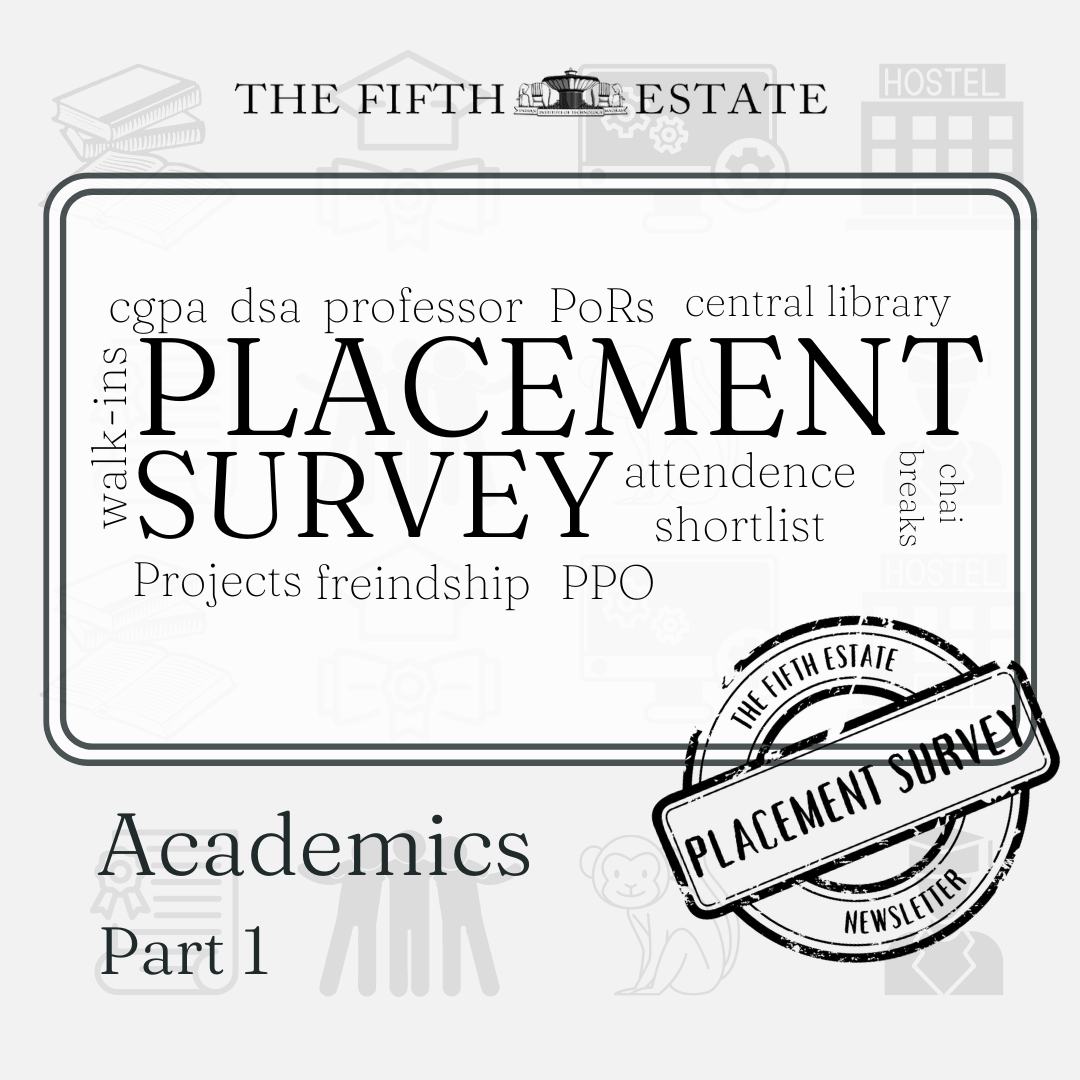As of today, IIT Madras stands as one of the most sought-after institutions of higher education in India. It is important to ensure that students from all walks of life get an equal opportunity in securing admission and studying at IITM. Under the aegis of the “Persons with disability act, 1995”, 3 % of the seats in each IIT have been set aside for differently-abled students. While this has proved to be a huge bonus for them, what about the quality of life after they enter the institutions? Is the law really effective in providing opportunity to students with impairments? Perform a simple test. Do you see at least 3 students with impairments in a class of 100?
With this idea in mind, we take a look at the accessibility of our IITM campus. Dr. Namita, a special education expert based out of Chennai, encourages students to help make the campus more accessible and tries to raise awareness among the students. Dr. Namita, along with Prof. Anil Prabhakar and Prof. Sujatha Srinivasan have introduced the ‘Assistive Technologies’ minor in the institute.
Poor visibility at the CLT entrance
One of the main activities pursued by students in this minor was the study of the accessibility of buildings like CLT, Cafeteria, Library and CRC. They submitted their recommendations about improving their accessibility as assignments. These access audits highlighted some of the weaknesses in the accessibility of the buildings at IIT Madras. We must think beyond just providing a ramp to every building. For instance, at the entrance to CLT, the lighting was found to be inadequate even during the day. Other difficulties noticed were inaccessibility of buildings from bus stand, negotiating wheelchairs through parked vehicles, not enough or inaccessible signage, inaccessible toilets, etc.
The faculty are working with the engineering unit to implement the recommendations. A meeting chaired by Prof. Sujatha Srinivisan and Prof. R David Koilpillai, the Dean of planning, was held to formally take up the task of making the campus more accessible. While the authorities were appreciative of the students’ work and the bunch of recommendations made by the faculty, it was pointed out that the findings were only preliminary and a professional audit of various buildings needed to be performed.
India is now a signatory to the UN Convention of Rights of Persons with Disability (UNCPRD). The meeting took cognizance of the fact that the guidelines for accessibility must be stressed as IIT Madras is bound by law to implement it. Unfortunately, many of our buildings are several decades old and can only be retrofitted today. However, we have an opportunity to take the learnings from the old and put on the new. The drawings for the new constructions should be reviewed by professionals, to ensure access for persons with impairment.
Stairs with sharp and chipped ends
To take a more holistic approach, the suggestions put forth in the audits were to be converted into a set of guidelines to be applied to the whole institute. However, the committee realized that the following issues required immediate attention and the engineering unit in consultation with Dean planning will implement corrective measures wherever practicable:
a. Bus stands need to be closer to the common facilities like the CLT, Shopping center etc.
b. Parking of vehicles shall be controlled and access for the wheelchair ramp shall be kept free. The ramps shall be accessible from the nearest vehicle drop off point and its slope, height and width should be as per the standards.
c. The visibility at the entrances shall be improved.
d. The dais as well as classrooms/lecture theatres shall enable hearing impaired person to understand the proceedings by suitable visuals on LCD.
e. The signage board/display charts shall be adequate to identify the location of the venue. These signage board shall be at convenient height and clearly visible even during evening.
f. The steps shall have contrasting colours for the riser and tread. The corners of the steps shall not be sharp but rounded.
g. Exclusive place for keeping wheelchairs shall be provided in classrooms, lecture halls and canteens.
As of now, the awareness about accessibility among the students, faculty and the administration is pretty low. The assistance provided by the authorities to the physically impaired students is only anecdotal. In fact, ramps first came up in IIT Madras only when the first wheelchair bound person entered the campus. Also, there is no means yet, to transcribe a student’s lectures into virtual output, which would be of great benefit to hearing impaired students.
Block Printing Machine for students with Cerebral Palsy developed by Sahaay
Currently, there is an organization in CFI, called Saahay, which helps students of Vidya Sagar, and similar organizations with their technology. There is space for a Support Group on campus, where persons who are interested in sharing experiences and solving problems can freely exchange ideas. To fill the paucity of a formal structure to address the needs of special students – Centre for Rehabilitative and Assistive Technology (create.iitm.ac.in) – a resource centre for entire Chennai, is planned to be established in IIT Madras. A direct quote from one of the professors who was involved in this course, Prof. Anil Prabhakar, “This is just the first step in a long journey”.
We are deeply grateful to the students who pursued the ‘ID3010 – Sensory, Motor and Language Disorders’ course (in the academic year 2014 – 2015) namely – Sachin Nayak, T. Sabarish Reddy, Gummapu Sravya Sekhar, Ikram Khan, Erukala Shravani, Nagabhushan R Bhat, Jagiri Manjeera, Aditi Singh, Dhruv Prakash, Nikhil Kumar C. S., Gatla Vamshi Krishna, Vishruit Kulshreshtha, Balasarvanan T. K., Kunal Grover, Varri Naga Sowjanya, Dommeti Chiranjeevi Sai Teja, Aradhyula Venkata Sai Prasanna, Vishal Subbiah, A Meenakshi, Talla Harsha Vardhan Reddy, Marrioudi Sailendra, Ramisetty Hari Prakash, Harsha Vardhan Reddy Kanchi, Favas MP and Panneeru Goutham – Prof. Anil Prabhakar, Prof. Sujatha Srinivasan and Dr. Namita Jacob for sharing the access audits, minutes of the meeting and their views on this article.






